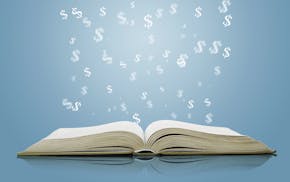Stuck in a house you can't afford or can't sell for more than you owe on it?
Beware the Web, where you'll see plenty of claims that short sales will save your credit, simple as that. But there's nothing simple about deciding whether to sell your house in a foreclosure or in a short sale, which means you sell the property for less than you owe the bank. And in most cases, going through either process will wreck your credit score.
"Both short sales and foreclosures are considered negative by the score, because our data shows us it's very predictive of future credit risk," Tom Quinn, Minneapolis-based Fair Isaac Corp.'s vice president of FICO scores, said. "The claim that doing a short sale is not going to hurt your score is false. It's inaccurate."
Credit scores, which are designed to assess how likely it is that consumers will uphold their side of the bargain, look at the severity (are we talking bankruptcy or a late car payment?), frequency (have you skipped a payment once, or have you missed a bunch?), and recency (did you miss a payment last month or last year?) of items on your credit report.
In both short sales and foreclosures, "you made a lender eat a big number," said Alex Stenback, a mortgage banker with Residential Mortgage Group in Wayzata.
That's not to say that there aren't some instances where short sales are better. If a borrower is current at the point of a short sale, for instance, then the consumer's credit score won't sink as far as it would have if he hadn't made a mortgage payment for six months. Still, Fair Isaac says that the benefit from not having prior delinquencies on file pales when compared with the hit a score takes from a short sale.
Dan Williams, program director for LSS Financial Counseling Service, says this widespread notion that short sales are better for credit is a big problem because it deters some people from going into foreclosure when that would be the best option for them.
In Minnesota, homeowners can stay in their houses for six months after the foreclosure sheriff's sale. Factor in the fact that many banks don't start foreclosure proceedings right after the third missed payment, and families can potentially stay in a house for more than a year rent-free, hopefully saving that money to help them get back on their feet. This could amount to thousands of dollars.
Housing counselors say that most clients have credit scores in the basement already. "If you've got a poor credit score and are doing a short sale to preserve your credit, it's ridiculous," Williams said. And it's happening "every, every, every day."
If you're having mortgage trouble, seek help right away from a housing counselor or an attorney. Realtors are the go-to professionals to learn about the local housing market and what it takes to sell your home. But they aren't credit experts, and I'd get a second opinion if anyone is telling you that a short sale will save your score. And don't pay someone a lot of money if they promise to quickly rehab your credit score after foreclosure. Credit scores are forgiving -- over time.
'A major hit'
Both FICO and its credit scoring competitor VantageScore have released estimates for what happens to consumers' credit scores when they make mortgage missteps. In the VantageScore study, a homeowner with an otherwise clean record who then has a short sale sees their credit score drop between 120 and 130 points (on a scale of 501-990) compared with between 130 and 140 points if the same homeowner ends up in foreclosure.
For a homeowner whose credit report is rife with late payments on everything from credit cards to car loans, a short sale would ding them for between 15 to 25 points compared with between 10 and 20 points for a foreclosure. Customers with rotten scores will see smaller point drops than someone whose score is good, because the score already has taken into account the lower-scoring customer's risky behavior and adjusted the score downward.
FICO's example found short sales and foreclosures will set you back between 140 and 160 points if your credit score is a respectable 780 (on a scale of 300 to 850), or between 85 and 105 points if your credit is 680.
Even if you do your homework, you ultimately can't control how your housing woes are reported to the credit bureaus. For example, mortgage servicers may report your situation to the credit bureaus using different codes that could be interpreted more or less favorably by FICO, Quinn said.
What if your circumstances change and you're able to save your home from a foreclosure?
"Once you've got a foreclosure starting to track on your credit file, you're taking a major hit," even if you ultimately save your house, said Sarah Davies, a VantageScore senior vice president.
Credit scores play such a central role in consumer's lives. Yet it's so hard to understand them that people can end up making disastrous choices based on myths that are taken as fact. It's certainly not a catchall solution, but Congress should at least grant consumers free access to their credit scores, an idea which is currently being floated at the Capitol.
Kara McGuire • 612-673-7293 • kmcguire@startribune.com


